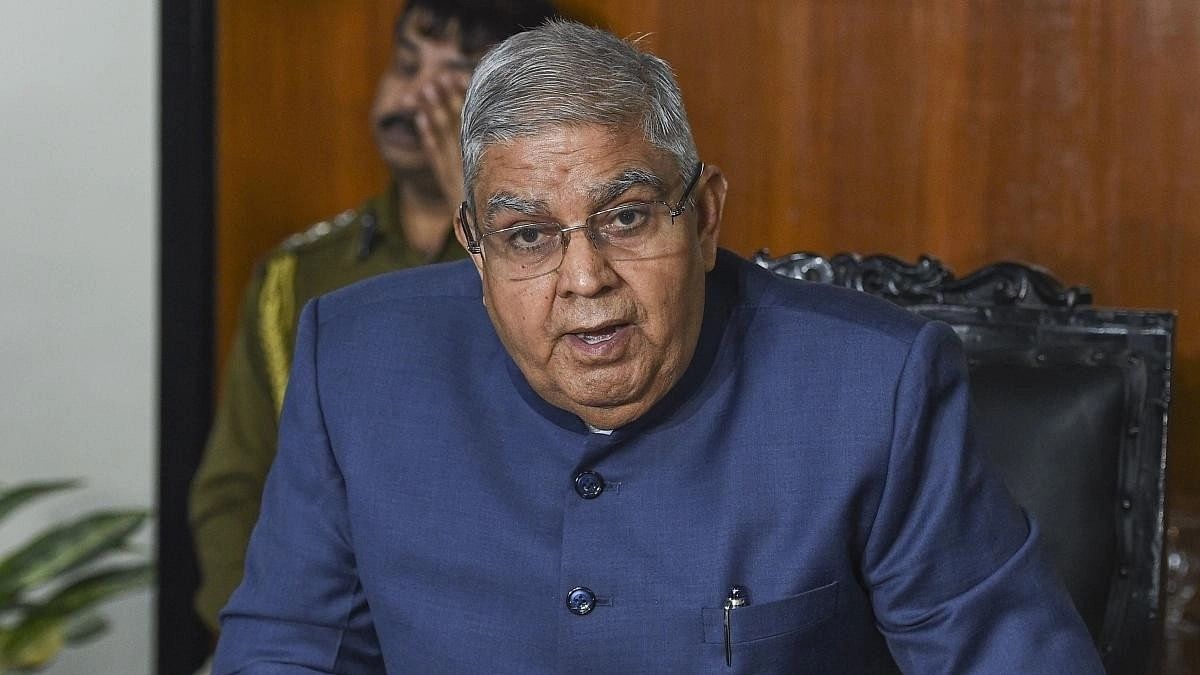
Vice President Jagdeep Dhankhar.
Credit: PTI File Photo
New Delhi: Vice President Jagdeep Dhankhar on Wednesday said that Lord Buddha's message of peace, harmony and co-existence stands stark against forces of hate and terror and asserted that his teachings are not relics of the past, but a compass for our future.
He also said that in an age of ethical uncertainty, Gautam Buddha's teachings offer a path of sustainability.
He urged people to follow the light of tolerance, justice, and a shared commitment to peace, paving the way for a future where all flourish.
Addressing the inaugural session of the 12th general assembly of the Asian Buddhist Conference for Peace, he said Bharat as a nation has been guided by the principles of Buddha.
"Buddhism was born in India and spread to the diverse corners of the world," he said and cited a statement of Prime Minister Narendra Modi that 'we proudly belong to a nation that gave Buddha and not 'yudh' (war)'.
"World today faces challenges that are universal and call for concerted efforts - be it climate change, conflict, terrorism or poverty...These challenges to humanity are existential and can be addressed by common resolve and collaborative and collective approach," he said at the event.
Dhankhar felt that as technology races ahead, Buddha's Middle Path – a tapestry of friendship, moderation, and reverence for all life – offers a sustainable path for people.
The principles of Lord Buddha, the Vice President said, are no less than a beacon of hope and light to catalyse convergence of all stakeholders on a common platform.
The Vice President also said that violence has never generated unity and peace has never led to divisions.
He noted that the Indian Constitution's artwork reflects 5,000 years of history and referred to Part V, where Lord Buddha graces the section on Union governance.
This placement symbolises the ideals of enlightenment - a parliamentary system, independent Judiciary, and balance of power - guiding the nation's highest institutions, he said.
India is committed to ensuring that the younger generations across the world learn more about Lord Buddha and get inspired by his ideals, he said.
"India is proactive, be it the development of the Buddhist circuit, boosting connectivity for international travellers to access sites of Buddhist heritage, or the efforts such as the India International Centre for Buddhist Culture, or the popularisation of Bhagwan Buddha's message," he said.
Speaking on the occasion, Union minister Kiren Rijiju said that Buddhism has given the world passing through transformational challenges a way of life based on peace and non-violence.
He said without peace human civilisation would be at stake.